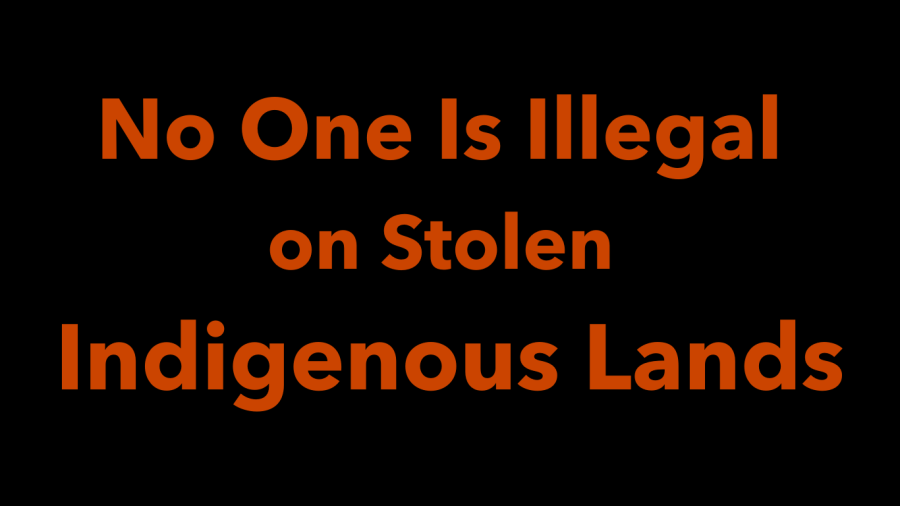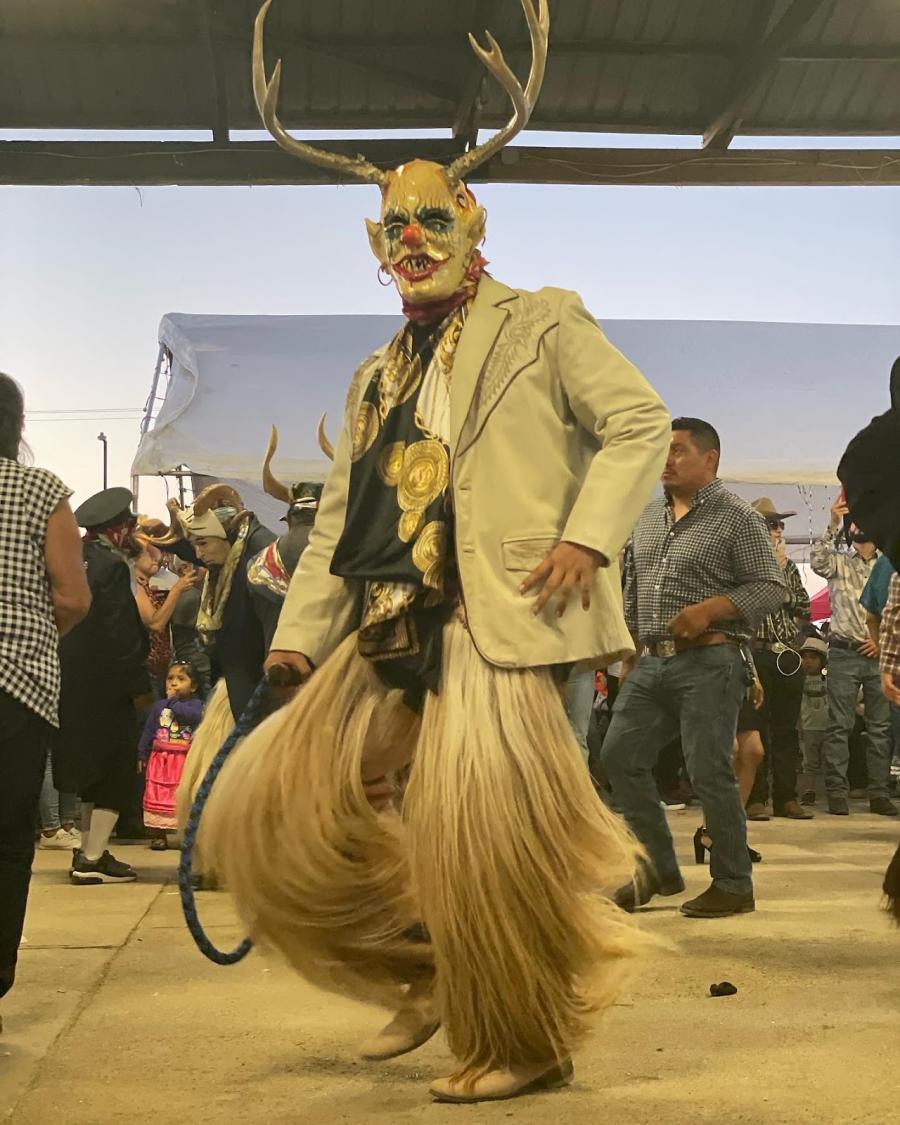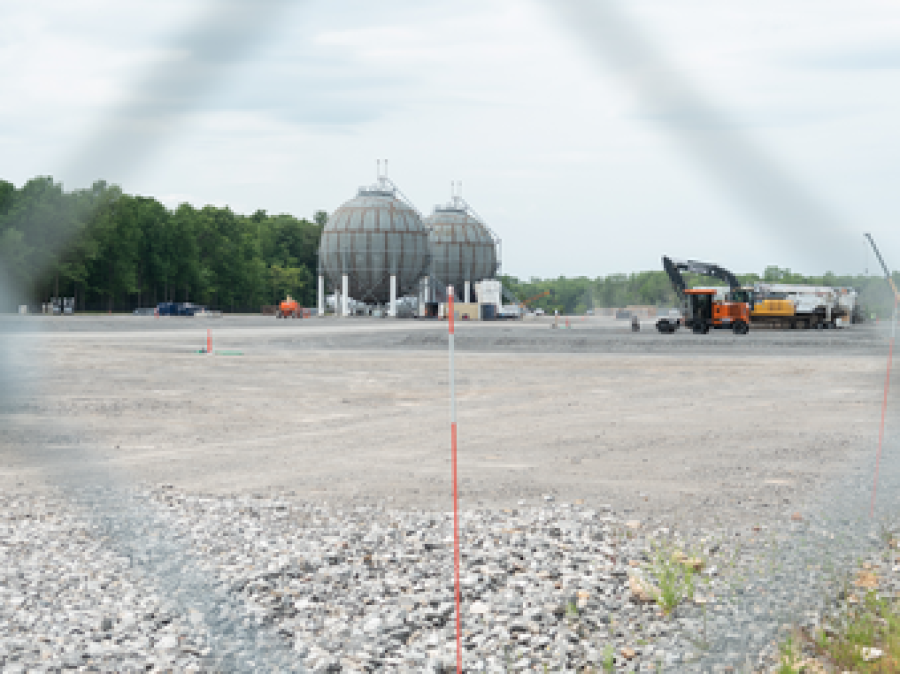
By Hartman Deetz (Mashpee Wampanoag)
In early April 2024, I received an email from my friend and colleague, Dr. Crystal Cavileer (Occaneechi Band of the Saponi), asking if I would serve as a judge on a Rights of Nature Tribunal. The Yesah Tribunal would be a case of the Haw River vs. the Mountain Valley Pipeline, or MVP. I was taken aback by her request, as I did not feel as if I had the qualifications to serve in the capacity of a judge—after all, I have not studied law or passed a bar exam; I only have a bachelor's degree in cultural education and community sustainability. How could I be a judge?
But they wanted me. Dr. Cavileer told me that it would be an ethical tribunal, as opposed to a legal tribunal, and that my experience in advocacy activism and cultural education all stood to qualify me for this tribunal. And so I accepted. This tribunal would not be legally binding; in other words, we had no means to enforce terms of judgment. We could not jail or fine anyone or issue a cease and desist order, an injunction, or restitution. It did not matter if we lacked jurisdictional authority or if the case had legal standing. But I knew what these things mean and why they matter.
In truth, I have grown up around law. My great-grandfather was a lawyer who helped found the NAACP. My grandfather initiated a legal battle for our land rights in Mashpee, only to have our standing as a Tribe be questioned. That decision, in turn, led to a further legal battle to prove our identity as a Tribe, helping create the process known as Federal Recognition today. One of my best friends growing up was the son of a civil rights lawyer, and my first love would go on to become an immigration lawyer and then a labor lawyer. Later in life I would spend four years partnered with an international human rights lawyer. In my own work, I have advocated for legislation, walking the halls of the state house and meeting with our elected representatives. I realized I had come to know a fair amount about the workings of legal systems.
When I asked Dr. Cavileer why she chose to organize a tribunal instead of working through the channels of the state or federal legal systems, she said, “I choose to [seek justice] through the tribunal because it is the only way Indigenous voices will be heard without being shut down by the colonial government structure. And I speak from personal experience.” Dr. Cavileer’s organization, 7 Directions of Service, partnered with Movement Rights and the Global Alliance for Rights of Nature to organize and facilitate the tribunal. An invitation was extended to the Mountain Valley Pipeline as well as the state and federal agencies responsible for protecting the environment, all of whom declined to attend.
Dr. Cavileer with her husband Jason Keck listen as witnesses give testimony. Photo courtesy of Norman Sands/Way of the Sacred Mountain.
Legal systems help to uphold a society's value system, and just as the communist systems of law are underpinned by a social value that favors the state and capitalist systems favor private ownership, Rights of Nature favor the needs of the natural world. I showed up with a bias—a bias for preserving life, for maintaining the natural world, for protecting drinkable water, for sustaining breathable air, for conserving healthy soil. At first, I felt as if this might make me the wrong choice, but then I thought about our current Supreme Court, and how they have shown a clear bias for profits over people, a bias for growing the GDP, a bias for corporations and the billionaire class that sponsor their lavish lifestyles.
The Yesah Tribunal was the first Indigenous-led Rights of Nature Tribunal in the world. As the tribunal commenced, the Earth prosecutor, Pamela Martin, stated, “This tribunal relies on the Universal Declaration on the Rights of Mother Earth for its jurisprudence.” And while the United States has shown its lack of commitment to adhering to international law, 123 nations have signed the declaration, including the U.S.A.. However, when it comes to accountability, the United States will be quick to remind the world that the declaration is non-binding and, therefore easy to ignore. There are many laws on the books that are enforced, but there are also many laws on the books that are not enforced.
As I thought about the bias in the current courts and the values that they reflect, I realized that the western colonial world seems to have never questioned its own validity, never had a case of imposter syndrome. Did the judges and magistrates of the colonies ever consider how a king of a foreign nation could impose his will as law over another sovereign people in a land that was not his own? Did they ever consider it an overreach of their jurisdiction to push aside local laws and systems of land tenure in favor of a charter drafted a continent away, across an ocean, set up on the value system that had a clear and implicit bias for the rights of white Europeans over the rest of the world? No, they did not. They simply carried out their lives as if they were empowered with the authority to impose these laws on non-European people, and as a society, their people went along with it to eventually create a new system of law for the land.
Dr. Katti gives his testimony to the tribunal about social lives of animal communities. Photo courtesy of Norman Sands/Way of the Sacred Mountain.
Co-secretariat Natalia Green of the Global Alliance for Rights of Nature said in her opening statement that “this tribunal was brought about because of the failure of the state to provide justice.” Throughout the tribunal we heard from expert witnesses as well as personal testimony from community members impacted by the construction of Mountain Valley Pipeline. We would hear about how the construction of the pipeline has called police to report people for trespassing on their own property, how they have constructed fences that block access to cemeteries and burial grounds, how the air pollution from pumping stations and construction equipment have caused community members to have eye, nose, and throat irritations, headaches, and nausea. We saw photographs of sedimentary pollution of the river that ran for miles.
Expert witnesses talked about the impacts to endangered wildlife such as the Cape Fear shiner, the James River spiny mussel, and the Virginia big-eared bat, species that are so hyperlocal that they would be put at risk for extinction. Extinction is permanent and irreparable; there can be no mitigation or repair for extinction. We heard passionate testimony from Dr. Madhusudan Katti about the impact that noise and light pollution as well as the visibility of the water, have on the social lives of animals. Their ability to find their flock, pod, or school could be seriously disrupted, as well as their ability to communicate and find mates to procreate to produce new generations of offspring. Dr. Katti said, “Tribunals like this can serve as an aggregate to hold humanity to account.”
For Tribal people like the Occaneechi Saponi, the interwoven relationships between all life are reinforced again and again with the words, “All my relations,” meaning all life, all life here on Earth. Dr. Cavileer told me about how the James River spiny mussel was a big part of their traditional diet and how the shells are used to create distinct jewelry that signifies their bond to the place as Occaneechi Saponi. The further destruction of land and pollution of water is “retraumatizing,” according to Dr. Cavileer. “Eco-grief and climate anxiety are real psychological trauma,” she said. “We were paper genocided, our race changed on paperwork to another race, and then after that, we were enslaved, put into slavery. After the Civil War, some of the slave masters had to give back some land, and then to have that pipeline come in and take the land away again? It’s retraumatizing.”
It is time for us, as true human beings, to turn our backs on the legal system that makes living people second-class citizens to corporate persons. When the colonial systems were imposed, they did not tear down the legal systems of Tribal nations; they simply built alternate systems to take their place. We are living in a time of tremendous change in the environment, in the world economy, in the sharing of information, and in the advances in technology that have even created computers that can think for themselves. The tools of a colonial system of law created in the age of sail power and wooden ships, of a pre-paper currency, of handwritten letters that might take months to communicate messages from sender to receiver, might not be suited to meet the needs of today.
More and more, western science is starting to understand the complex interconnectedness of the natural world, the consciousness of trees, the social life of animals, and the human impact on the weather and our climate. We are extremely powerful as human beings and have had an immeasurable impact on the world and the natural systems of life that exist. Currently about 20 percent of the Earth's land has been developed by humans. To imagine that human activity has not had a major impact on the planet is to simply ignore the facts. The development of nuclear power and nuclear weapons has raised the background radiation significantly since 1945, carbon gas emissions have changed the composition of our atmosphere, and if we continue to pollute our fresh water, we may not have drinkable water for all of humanity within 50 years. If we, as human beings, destroy the other life on this planet, how will we survive? Without cows and pigs, without corn or potatoes, will our spiritual cannibalism turn into actual cannibalism if we destroy all other life on the planet?
But if we have the power to harm the world to this extent, we also have the power to heal. This will require not only shifts in technology but also a shift in how we fundamentally view the world and the values we have as a society. The idea of re-investing in fossil fuels because it is a source of job creation has to be shifted to creating jobs that will remove the garbage patch from the Pacific Ocean, that will build the giant carbon filters on the grand scale equivalent to the Hoover Dam, to investment in jobs for soil renewal and removal of microplastics from the environment. There is a lot of work to be done that can create the value of a livable planet. To save ourselves, we have to consider the important roles that all life plays in creating this balance of life in the world we live in.
--Hartman Deetz (Mashpee Wampanoag) has been active in environmental and cultural stewardship for over 20 years. He is a traditional artist as well as a singer and dancer, having shown his art in galleries and performed for audiences from coast to coast across the U.S. He is currently a 2023-2024 Cultural Survival Writer in Residence.
Top photo: L-R: Heather Milton Lightening (Anishinaabe, Nêhiyaw, Blackfoot, Dakota), Hartman Deetz (Mashpee Wampanoag), Dr. Crystal Cavileer (Occaneechi Saponi), Casey Camp Horinek (Ponca), La’Meshia Whittington ( Apalwahči Mvskoke, Afro-Indigenous), and Patrick Suarez (Meherrin Nation). Photo courtesy of Katie Nehls/Movement Rights.



